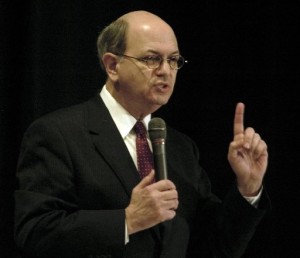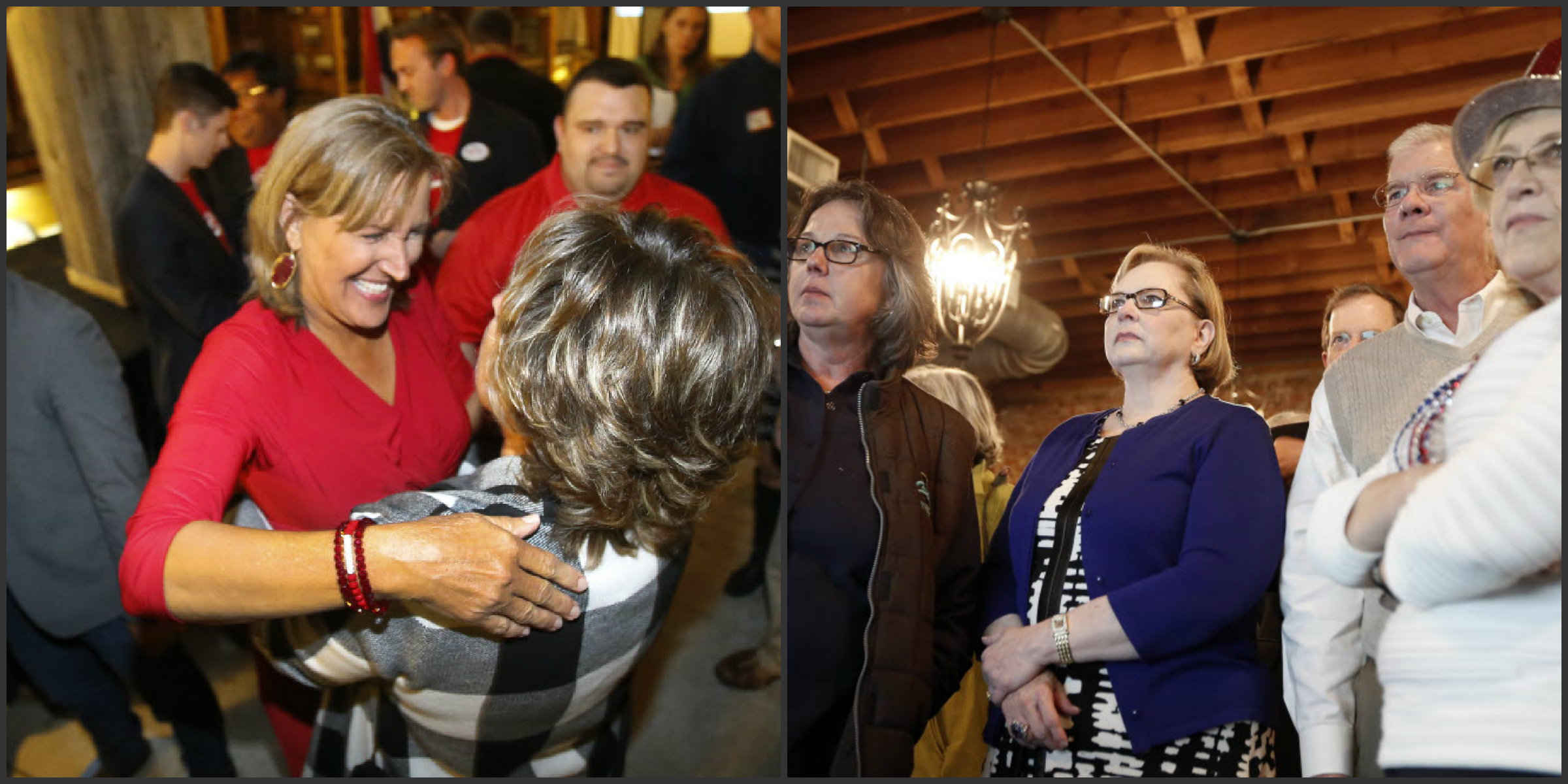Update, 12:58 a.m.: The Gallego campaign has conceded. In a statement, Gallego said he will “embrace the will of the voters in this election” and congratulated Hurd on his win.
“Texans deserve far better than what Congress has been giving them and I intend to provide Will any and all help I possibly can to help him work to correct that problem as he prepares to take office,” Gallego said.
Update, 12:50 a.m.: The Congressional Leadership Fund and the American Action Network — two GOP groups who spent a combined $1.6 million to boost Hurd – said the Republican’s victory sends a strong message to “stop runaway government in Washington.”
“Texans can look forward to Will’s leadership as he supports center-right solutions for creating jobs, protecting Americans from Obamacare, and increasing opportunities for all Americans,” the groups said in a statement.
Update, 12:39 a.m.: In a statement, National Republican Congressional Committee Chairman Greg Walden congratulated Hurd on a “hard-earned victory.”
“Will ran a fantastic campaign that focused on the issues Texans care about. Will truly has dedicated his life to helping his country and this is yet another proud chapter,” Walden said. “I’m honored to call him a friend and colleague.”
Update, 12:29 a.m.: Hurd has unseated Gallego, the freshman Democrat from Alpine, according to the Associated Press. The pickup means that the Texas delegation will now have 25 Republicans and 11 Democrats, including three freshmen.
Hurd won 50 percent of the vote to Gallego’s 48 percent, or by a little more than 2,000 votes, with nearly all precincts reporting.
Update, 12:24 a.m.: With 97 percent of precincts reporting, Hurd leads by 2,124 votes.
Update, 12:05 a.m.: Gallego is trailing Hurd by 3,050 votes, with 90 percent of precincts reporting.
Update, 11:33 p.m.: Hurd is clinging to a lead of 3,559 votes, with 85 percent of precincts reporting.
In northeast Texas, Ratcliffe said he’s humbled by the trust voters have placed in him.
“My future job title will be United States Representative, and I take that very seriously,” he said in a statement. “It means that I work for the people and not the other way around.”
Update, 11:04 p.m.: Hurd is still leading 50 percent to 47 percent, or by 3,361 votes. So far, 84 percent of precincts have been reported and counted.
Update, 10:44 p.m: Hurd’s lead over Gallego has widened to 3,596 votes. He’s up 50 percent to Gallego 47 percent, with 81 percent of precincts reporting.
Update, 10:23 p.m.: It’s become an even closer race. Gallego trails Hurd now by just 535 votes, with 60 percent of precincts reporting.
In another U.S. House race in Texas, Corpus Christi Rep. Blake Farenthold, fresh off his re-election, vowed to continue to try to repeal the Affordable Care Act and cut government spending.
“Tonight’s results show our dedication to meeting the needs of the people of Texas, our message of securing the border, making government accountable to the people, ensuring our veterans receive the benefits they have earned, and providing conservative leadership resonates with the voters of the 27th Congressional District of Texas.” the Republican said in a statement.
Update, 10:01 p.m.: The race could go down to the wire. Hurd continues to lead Gallego, but his margin his shrinking. Just 832 votes separate the candidates, with 58 percent of precincts reporting.
Update, 9:30 p.m.: With 39 percent of precincts reporting, Hurd is up 51 percent to Gallego’s 46 percent.
Meanwhile, Sam Johnson, R-Plano, who sailed to re-election, called his win a “true blessing.”
“I want to thank everyone for their belief in me and for their vote,” Johnson said in a statement. “It’s humbling and I vow to continue to fight for you.”
Update, 9:05 p.m.: Hurd leads by about 2,200 votes, out of almost 62,600 cast. One-fifth of precincts have been counted.
Update, 8:36 p.m.: Hurd still retains an edge over Gallego, 52 percent to 46 percent, with 10 percent of precincts reporting.
In other House races in Texas, there aren’t any surprises: All incumbents appear headed for re-election.
After winning Tuesday night, Rep. Joe Barton, R-Arlington, said he was “honored” to be re-elected.
“I am hopeful that we will expand our Conservative presence in the House and win a Republican majority in the Senate,” Barton said in a statement. “The American people have spoken and I urge the President to work with us so we can accomplish the things we were elected to do.”
Update, 8:01 p.m.: Hurd leads Gallego 54 percent to 44 percent, with 4 percent of precincts reporting.
The Associated Press has called several other U.S. House races in Texas, all in favor of incumbents.
Democratic Reps. Marc Veasey, Eddie Bernice Johnson, Sheila Jackson Lee and Lloyd Doggett all cruised to another term. On the Republican side, Reps. Blake Farenthold, Michael Burgess, Mike Conaway, Mac Thornberry, Kay Granger, Pete Olson, Pete Sessions, John Culberson, Michael McCaul, Kenny Marchant and Bill Flores were re-elected. Babin’s victory has also been sealed.
Original post:
WASHINGTON — There are 36 U.S. House elections in Texas today — but only one that’s truly competitive.
In West Texas, Rep. Pete Gallego, D-Alpine, is taking on Republican challenger Will Hurd, a former CIA operative. The famously volatile 23rd District, which stretches from San Antonio to El Paso, has elected four congressmen in the past 10 years.

Rep. Pete Gallego, D-Alpine (AP Photo)

Republican Will Hurd, a former CIA operative (Hurd campaign)
Gallego and his team are watching returns tonight at Don Pedro, a Mexican restaurant in San Antonio. Hurd and his campaign are at the Eilan Hotel, also in San Antonio.
In two other U.S. House races in the state, newcomers are poised to win: Dr. Brian Babin in suburban Houston and John Ratcliffe in northeast Texas. No other seats are expected to change hands.
Babin, a Republican, is set to replace Rep. Steve Stockman, who gave up his seat in an unsuccessful bid for the U.S. Senate. Ratcliffe, also a Republican, defeated 17-term incumbent Rep. Ralph Hall in a primary runoff in May.














